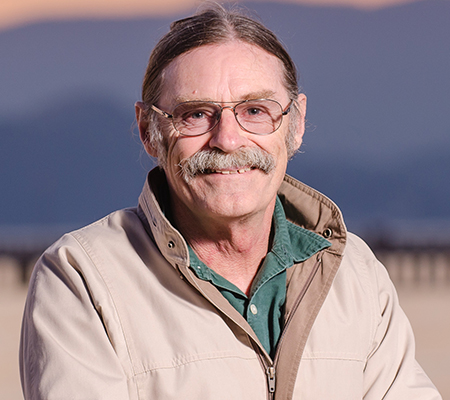By many accounts, the December 8, 2013 municipal elections in Venezuela strengthened Nicolas Maduro’s hold on power and guaranteed the so-called “Bolivarian Revolution” at least another two years of rule. The Chavistas and their allies, as expected, took a majority of the small cities and towns of the country, 242 to 75 won by MUD, the Democratic Unity Roundtable.
The opposition, which the Chavistas qualify as “ultra-right” but which in fact is a broad coalition that spans the political spectrum, had hoped this would be a referendum on Maduro’s rule. Until October, that looked like it would be the case, given that Chavez’s hand-picked successor’s popularity was going south and some 67% of Venezuelans had a pessimistic view of the country’s future.
Then in November Maduro appeared to tackle the problem of inflation, the highest in Latin America and among the highest in the world. He went on the attack against the “bourgeoisie” and some took his words to be encouragement of looting and attacks on Venezuelan businesses. Maduro occupied and forced a big electronics chain, Daka, to lower its prices, and one of its stores in Valencia was looted. A series of lootings of mostly electronics stores swept through the country, with little response from the government – except to arrest the owners of stores for “usury.”
The problem of high prices is complex, but most agree that it relates to the fact that in order to maintain itself in power the Bolivarian government has gone deeply in debt, and monetized its debt (doubling the number of bolívares in circulation in just one year, the obvious cause of the nation’s economic woes). The debt is also connected to the fact that the country no longer produces much of anything, and even oil production has dropped by a quarter since Chavez came to power, forcing the country to import even more to meet its basic needs. Oil production continues to drop at 3-4% per year. That, not to mention the fact that, again, due to lack of maintenance, incompetence and irresponsibility, in this nation with the largest oil deposits in the world, Venezuela buys refined gas from the US to the tune of nearly $300 million last year, importing nearly a quarter of what it uses (which it then subsidizes to offer Venezuelan consumers at pennies per gallon). It uses far more natural gas, but with its own reserves second only to the US, it imports natural gas from the US and Colombia.
Nevertheless, the most costly items on the bill are the social programs, called “Missions,” which Chávez designed specifically to increase his popularity just before the 2004 Referendum (Cristina Marcano and Alberto Barrera Tyszka’s great bio, “Hugo Chávez, p 270 on this point), which he won handily as a result of the handouts. And that brings us back to the recent municipal elections.
Nicolas Maduro no longer has the wealth Chávez commanded. Now the nation is in debt, selling future oil to China for loans, cutting deals with Chevron while it sells oil through Petrocaribe with 25 year and one percent interest loans, even as it has to borrow at 9 and 10% to keep itself afloat… one can afford to be stupid with so much money being pumped out of the back yard. But the stupidity is finally catching up to Maduro, so the giveaways of plasma televisions around Christmastime at bargain basement prices, even when millions have to wait in line to get toilet paper, or to find out there’s no milk… well, let’s say that at least Maduro’s “war on usury” worked to get his party a majority of the votes. Even if “Papa State,” as the government of Venezuela is known locally, can’t offer any goodies before the elections anymore, it can at least offer people impunity as they pillage the country’s business sector and beat up the owners. But it’s a pathetic “Revolution” that has to resort to such tactics to maintain its power.
While Maduro’s throwing chunks of the business sector to the mobs to tear apart might inspire admiration and secret delight among many on the left, it is a policy that dooms the already catastrophic economy to further deterioration. The state will no doubt nationalize many of the companies as business people of all stripes begin to walk away from the disaster, but nationalization in Venezuela is a Bolivarian kiss of death. Across the board, the nationalized industries are at best producing at 50% due to cronyism, and the incompetence of military men who are at the helm.
Significantly, though the PSUV’s candidates now represent a majority of the mayors of the country and a majority of the votes as a result of these policies, the Democratic Unity Roundtable won all but one of the districts of Caracas, and most of the major cities of the country. It’s an electoral scenario not unlike that in the US where the country folks represent the “red” and the urban populations are “blue,” even if “red” and “blue” mean different things in the US and Venezuela.
The next elections in Venezuela are two years off. That’s a long time when the economy is facing hyperinflation, and there’s a bozo driving the Bolivarian bus straight toward a cliff.
Meanwhile, people at the grassroots are organizing alternatives. The third largest vote-getter in this election was the Bicentennial Republican Vanguard, a dissident Bolivarian faction. Recently indigenous groups from all around Venezuela met in Mérida to plan a gathering to deal with the serious problems to the environment and their communities that the government’s extractive industries pose. The government, they made clear, nor its people, will be invited. The unions in the Basic Industries of Guayana have paralyzed Puerto Ordaz off and on for months, and they remain active, even if government infiltrators and factions continue to wreak havoc on worker unity. Despite increasing violence on the part of government supporters which includes the murders of opposition candidates, usually with impunity (as usual, given that over 90% of the murders carried out per year, topping 20,000, are never even investigated), and attacks on peaceful demonstrators, opposition to an increasingly fascistic and corrupt government is growing. Whether or not the democratic forces in the social movements and their supporters will come to power before the generals take the reins of the country, however, is the real question.


